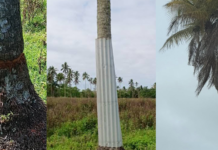COMMENTARY Former Justice Cooper’s time on the Tongan bench has ended with the expiration of his contract. While his tenure successfully advanced the prosecution of illicit drug offences—the primary reason for his appointment—it also raises critical questions about the Privy Council’s processes for selecting and appointing judges.
It also raises the question of whether our “poorest constitution” among Commonwealth countries, with its problematic clauses governing courts, the judiciary, and the Attorney General office—now deemed unworkable and potentially illegal—has underlying implications that contribute to the technical and operational shortfalls we see in the judicial system today.
Justice Cooper had been a prosecutor level three in the UK before being brought to Tonga to handle cases related to illicit drugs, a significant concern for the Kingdom. Over time, his responsibilities expanded to oversee other criminal cases, including one of the most important and high-profile cases of the century: the Lavulavus fraud case.
The couple’s charges, which involved allegations of misusing over TOP$500,000 government funds, culminated in a guilty verdict and a prison sentence for the defendants in July 2021. However, the Lavulavus successfully appealed the decision while they were in prison, leading to their release.
The Appeal Court found that the primary issue lay in Justice Cooper’s failure to maintain impartiality during the trial. This finding resulted in the court ordering a retrial, a decision that has had far-reaching consequences.
It is reasonable to question whether Justice Cooper should have initially presided over the Lavulavus case, considering his background as a prosecutor and potential lack of necessary experience for such a significant court case.
At taxpayers expense
What makes this situation particularly concerning is the significant cost it has imposed on the Tongan government and, by extension, its taxpayers.
The retrial process requires the police to reinvestigate the case, the Attorney General’s Office to re-prepare its legal arguments, and the judicial system to allocate additional time and resources. These expenses are not just financial; they also strain the public’s trust in the legal system.
Meanwhile, the Lavulavus remain free, living in the public eye while the nation watches and waits for the outcome of the retrial. This case underscores the critical importance of judicial impartiality and the need for rigorous oversight in the appointment of judges. It also highlights the broader implications of judicial decisions, which can have lasting impacts on public confidence, government resources, and the pursuit of justice.
The most concerning scenario would be if the Lavulavus succeed in their appeal against the retrial. In such a case, they could potentially sue the government for compensation, which would place yet another significant financial burden on the country.
Justice Cooper’s tenure serves as a reminder that the selection of judges must prioritize not only expertise but also integrity, impartiality, and a deep understanding of the local context.
As Tonga moves forward, the important question is: is it time that the king should do something to address the report revealing how poor our constitution is?
Justice and AG offices
The report by an expert who reviewed Tonga’s constitution said that dividing the justice sector among the Ministry of Justice, the Office of the Lord Chancellor, and the Attorney General’s Office has proven inefficient, ineffective, and unaffordable.
According to the report by constitutional law expert Peter Pursglove, the reforms laid out in the 2010 Constitution are unworkable, incompatible with Tonga’s constitutional monarchy, and lack legal, cultural, or historical ties to the Kingdom.
“The provisions in the Constitution relating to the Judiciary are particularly lacking in both structure and content to the extent that they are not only unworkable but are totally incompatible with the principles of constitutional monarchy and democracy upon which the new Constitution of 2010 was supposed to have been founded.
“The report notes that the justice sector has been divided between the Ministry of Justice, the Office of the Lord Chancellor and the Office of the Attorney General. “Having three separate bodies responsible for the justice sector is proving to be unworkable,” the report says. “It is inefficient, ineffective and unaffordable”.
According to the Pursglove report, which was endorsed by the Tu’ivakanō government in 2014:
- Tonga’s 2010 constitution does not uphold democracy
- The Privy Council lacks any democratic composition or accountability
- The judiciary lacks accountability and transparency.
- Changes to the judiciary are inefficient, ineffective, unaffordable and possibly illegal.
- No public discussions were held regarding the reforms to the judiciary or why they were considered necessary.
“The present Constitution of Tonga can lay claim to being the most poorly structured and drafted Constitution of any Country in the Commonwealth,” the report says.







